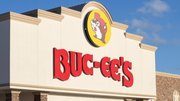Article
Can Booqoos make social discounts more valuable to retailers?
Upstart competitor to Groupon aims to give retailers more control over their campaigns.

July 24, 2011
By Dave Henry
We've all heard the horror stories of retailers who sign up with group-buying discount sites only to find themselves ill-equipped to handle the resulting tsunami of one-time bargain hunters. And not only can customers get frustrated, but when the final accounting is done, the retailer might just find out they took a loss on the whole deal.
"No marketing person worth their salt would recommend any business take 25 percent of what they normally get 100 percent of or lose money on each and every sale in some misguided belief [that] 'we'll get it back some day,'" said retail consultant Bob Phibbs, author of "Groupon: Why Deep Discounts are Bad for Business." "This is a black and white issue for me and my clients," he said.
In an environment where merchants are growing increasingly leery of daily deals, a new player is positioning itself against the behemoths that require merchants to offer huge discounts on high volume deals that are frequently oversold and then keep 50 percent of the take for themselves.
Austin, Texas-based Booqoos is a next-generation discount marketplace that simplifies the process for local small- and medium-sized businesses. Based on a patent-pending platform of do-it-yourself marketing tools, Booqoos' solution gives merchants complete control to self-manage deals in ways that best suit their individual goals.
For example, retailers can post a deal at half the cost of other deal sites, present multiple deals at once, package deals to upsell slow-moving items, or schedule up to a year's worth of time-launched offers at once and distribute them to consumers via email, social media and/or Booqoos.com. Merchants can further avoid deep cuts into profit margins by offering anywhere from a single coupon up to 20,000 with no minimum required discount. Booqoos' commission is 25 percent of the discounted price.
Booqoos also allows charities and non-profits to tap into the deals market for fundraising efforts, and will even match business contributions of up to 10 percent of the deal purchase price.
With its tagline, "The deal you want when you want," Booqoos says its service makes it easier for discount seekers to find and purchase the deals they want through a digest email of deals defined by the consumer's preferences and a searchable database of aggregated deals from other sites, as well its own.
Merchants can also create book-when-you-buy deals that require shoppers to book appointments at the time of purchase. CEO Raúl Calvoz says this "prevents the type of situation where 3,000 people buy deals for manicures and then all show up at noon the day before Easter."
The site also tracks top-performing offers and makes recommendations to merchants specific to their category. This is especially valuable for businesses that lack the resources to collect and analyze such data.
A recent study by Rice University's Jesse H. Jones Graduate School of Business found that deal-of-the-day promotions such as Groupon's have proven unprofitable for 32 percent of the businesses surveyed, with more than 40 percent of the respondents saying they would not run such a promotion again. These numbers suggest a fertile environment for players that offer merchants more equitable percentages and greater flexibility.
So, does Booqoos stand a chance against Goliaths like Groupon and SocialLiving? In a word, no. Not according to Vinicius Vacanti, CEO of Yipit, a daily deal aggregator that collects data from more than 300 daily deal sites.
Vacanti insists that dissatisfaction with Groupon has been overplayed in the media and suggests there is not sufficient dissatisfaction for any startup to siphon off merchants in sufficient numbers. Yipit co-founder Jim Moran cites the same Rice University study to point out that Groupon promotions were, in fact, profitable for the other 66 percent of merchants surveyed, with 40 percent saying they plan to offer additional daily deals.
Utpal Dholakia, author of the study, believes that "social promotion companies need to better balance consumer appeal with positive outcomes for the small businesses offering them. Right now," he says, "these deals are tilted too far in consumers' favor."
That, in fact, is the single greatest obstacle for any startup in the category: Groupon and Living Social are wildly popular with shoppers. And, thus far, no rival has devised a compelling strategy to lure them away.
 ChatGPT
ChatGPT Grok
Grok Perplexity
Perplexity Claude
Claude




